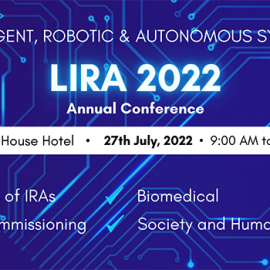
Just ahead of the summer break, the CSS hosted ‘Emerging into Emerita’, a conversational event which celebrated the work of Professor Lucy Suchman and Professor Maggie Mort, two scholars who have made such major contributions to a range of fields and endeavours – not least to the CSS itself. As its title implied, the event aimed not to mark the culmination of their work, but rather their emergence into new modes of academic personhood, as they transition into Professors Emeritae at Lancaster University.
Lucy and Maggie set themselves a specific theme for their conversation: to revisit their first piece of published work and their last, and to discuss between them the connections that might, or might not, span the two. We are pleased to be able to feature a recording of this conversation below.
Maggie’s first piece was from a newspaper, the Lancaster Guardian, in her first reporting job in her earlier career as a journalist. The 1989 front page lead exposed how the major redevelopment of the city was to be carried out by a company owned by a mining corporation based in South Africa at the height of sanctions and global campaigns against the apartheid regime. Reaction to the story delayed the signing of the deal which later collapsed. For her most recent piece she chose the co-edited book, Children and Young People’s Participation in Disaster Risk Reduction, an outcome of the CUIDAR project. Funded by the EU’s Horizon 2020 programme, she spoke of many struggles and compromises she and colleagues had to make during the project, trying to keep faith with the 500 plus young people they worked with, yet fulfilling the demands of evaluators and exigencies of the programme.
Lucy’s two pieces were an exploration of the attempts by organisations in the early 1980s to automate office-based processes and procedures dependent on human labour, and her ongoing research[1] on the ‘imaginaries of omniscience’ that are underpinning contemporary efforts by the US Department of Defence to automate military intelligence work. Along the way other works were brought into the discussion, including Maggie’s first academic book on the sociotechnical contingencies of constructing the Trident submarine programme, the UK’s nuclear weapons platform, through the 1980s, and her collaborative ethnographies of remote care systems, or ‘telecare’.
Amongst the many connections that Lucy and Maggie traced in this varied body of scholarship, most central was their shared preoccupation with the erasure, betrayal, and misappropriation of human, embodied work – whether in offices, in the construction of algorithmically derived categories, in care work, in the myriad representations of technological change as inevitable, and in academic labour itself. As they showed, key to these erasures is an accompanying set of imaginaries that work to displace human labour – imaginaries of military mastery, of uncomplicated analogies between human labour/cognition and computational processes, of the ease with which technologies are projected to replace the intimate work of caring for, and with, older bodies, of scholarship as productive of dislocated, disembodied truths to be fed into managerial practices.
This commitment to subjecting both empirical field sites and the compromises demanded of academic labour to critical scrutiny emerged as a further major theme. A number of participants at the event commented on Lucy and Maggie’s commitment to modes of academic practice characterised by collaboration, care and a readiness to open up the labour of producing academic work to inspection. In an article co-authored in 2009 by Maggie and Celia Roberts, they observe that in many of the discussions and discourses around telecare, “the meaning of care labour is impoverished; care becomes a set of tasks, rather than of ongoing relations”. As contributors at the event noted, in many different ways, Lucy and Maggie’s work – not just on their fields of research, but also with students, colleagues, and collaborators – has repeatedly and vocally resisted similarly instrumental understandings of the possibilities that scholarship afford. Instead, they have demonstrated and fostered models of work concerned not with the performance of sets of tasks, but rather with establishing an ongoing set of relations characterised by collaboration, careful critical engagement, and intellectual friendship. In the spirit of rendering visible labour that is often effaced, it seems appropriate to recognise this as an important additional strand of Lucy and Maggie’s multiple contributions.
As Lucy and Maggie continue emerging as Emerita Professors, in my role as CSS Director, I would like to once more offer my sincere thanks for all their work, in all its richness, both for and beyond the Centre. We hope that the CSS is able to play at least some part in that continued emergence.
Joe Deville, September 2021
[1] Suchman, Lucy (forthcoming), ‘Imaginaries of Omnisicence: Automating intelligence in the U.S. Department of Defense’, under review for Social Studies of Science.


